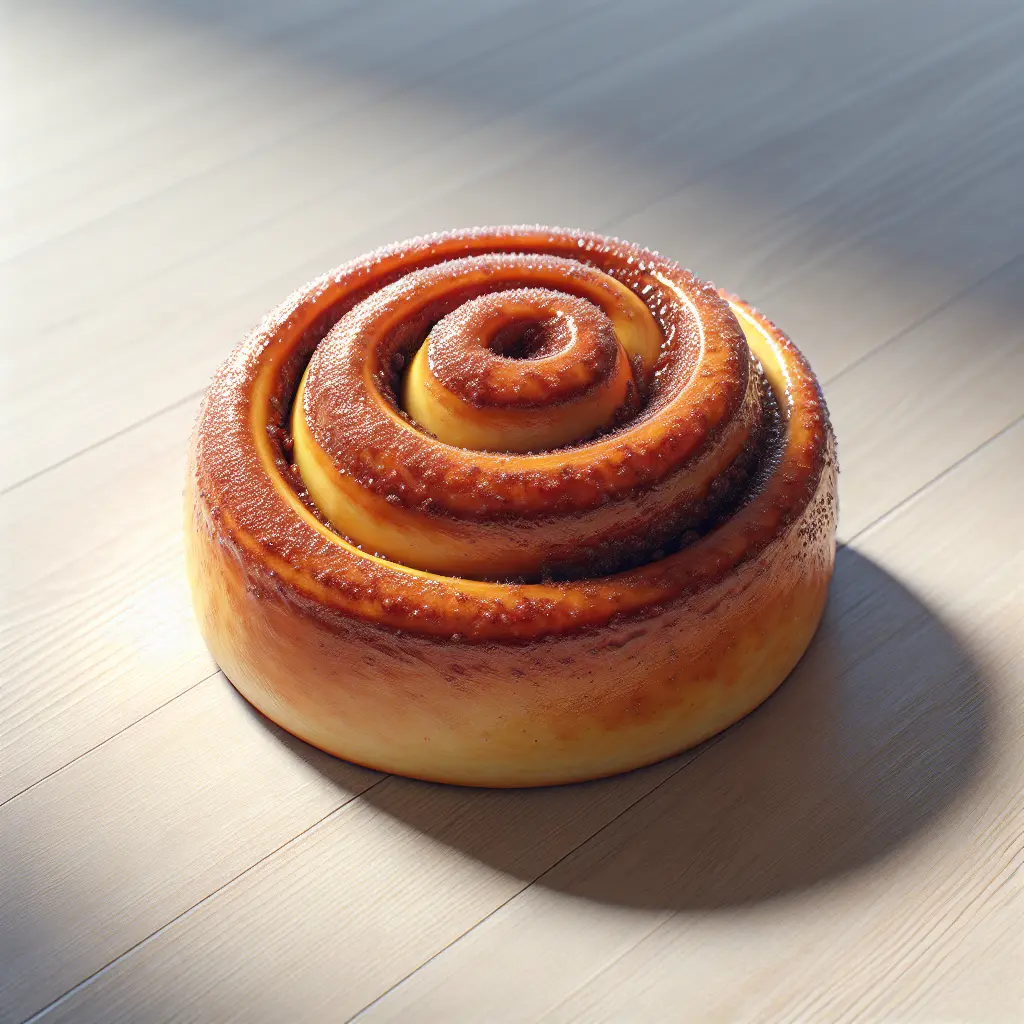A Culinary Journey Through Time: The History of Cinnamon Buns
Cinnamon buns, with their distinctive spiral shape and irresistible aroma, have a rich history that spans centuries. Their origins can be traced back to ancient Greece, where sweetbreads flavored with cinnamon and honey were a popular delicacy. Over time, these sweet treats evolved and spread throughout Europe, with each region adding its own unique touch.
In the 16th century, cinnamon buns made their way to Sweden, where they became known as "kanelbullar." These pastries quickly gained popularity and became an integral part of Swedish fika, a social custom involving coffee and pastries. By the 19th century, cinnamon buns had crossed the Atlantic and found a home in North America, where they became a staple in bakeries and homes alike.
Deconstructing the Delight: Ingredients of a Cinnamon Bun
The magic of a cinnamon bun lies in its harmonious blend of ingredients. At the heart of this pastry is a soft and fluffy dough, typically made with flour, milk, sugar, yeast, and butter. This dough is then generously swirled with a mixture of cinnamon sugar, creating the distinctive spiral that characterizes a cinnamon bun.
Once baked, cinnamon buns are often adorned with a sweet and gooey glaze. This glaze, made from powdered sugar, milk, and sometimes vanilla extract, adds an extra layer of sweetness and richness to the pastry. Additional toppings, such as chopped nuts or raisins, can be added for an extra burst of flavor and texture.
Nutritional Value: A Sweet Treat in Moderation
While cinnamon buns are a tempting indulgence, it's important to consume them in moderation due to their relatively high calorie and sugar content. A single cinnamon bun typically contains around 294 calories, with the majority of those calories coming from carbohydrates and sugar. However, cinnamon buns also offer some nutritional value, including protein, fiber, and small amounts of vitamins and minerals.
Tips for Baking the Perfect Cinnamon Bun at Home
Embarking on the journey of baking cinnamon buns at home can be a rewarding experience. Here are a few tips to help you achieve pastry perfection:
- Use high-quality ingredients: Opt for fresh, high-quality ingredients for the best flavor and texture.
- Knead the dough properly: Kneading the dough develops the gluten, which gives the buns their signature chewiness.
- Let the dough rise in a warm place: This allows the yeast to work its magic and create a fluffy dough.
- Generously swirl the cinnamon sugar: Don't be shy with the cinnamon sugar; it's what gives the buns their irresistible flavor.
- Bake until golden brown: The buns are done baking when they are golden brown and sound hollow when tapped.
- Enjoy warm: Cinnamon buns are best enjoyed fresh out of the oven, while they are still warm and soft.
Creative Variations: Exploring Cinnamon Bun Delights
The classic cinnamon bun is a timeless treat, but there are endless possibilities for creative variations. Try experimenting with different flavors by adding spices like nutmeg or cardamom to the cinnamon sugar mixture. You can also use different types of fillings, such as chocolate chips, fruit, or nuts. For a savory twist, consider using cheese or herbs in the dough.
Cinnamon Buns: A Taste of Tradition and Delight
Cinnamon buns have captured the hearts and taste buds of people worldwide for centuries. With their irresistible combination of soft dough, sweet cinnamon sugar, and gooey glaze, these pastries are a true culinary delight. Whether enjoyed as a warm breakfast treat, a sweet afternoon snack, or a special occasion indulgence, cinnamon buns offer a comforting and nostalgic taste of tradition.
How many calories are in Cinnamon Bun?
Each 1 bun of Cinnamon Bun contains 294 calories.
Cinnamon Bun Nutritional Information
| Nutrient | Amount per 1 bun (65g) |
|---|---|
| Calories | 294 Calories |
| Protein | 2.9g |
| Fat | 17g |
| Saturated Fat | 8.2g |
| Cholesterol | 0.0033mg |
| Carbohydrates | 32g |
| Dietary Fiber | 0.8g |
| Sugar | 17g |
| Sodium | 0.198mg |
| Potassium | 0.0663mg |
| Calcium | 0.119mg |
| Iron | 0.0009mg |
